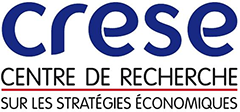Research Report for Institut des études et de la recherche sur le droit et la justice (IERDJ)
The advent of social media, coupled with the development of video and photo capabilities in mobile phones, has enabled the emergence of a new category of evidence in the investigation of crimes under international law. Investigators can now take advantage of any information that individuals post online, whether it is videos, photos or documents. Based on the observation of the transformation of the investigation of crimes under international law through the use of information from social networks, this research aimed to identify the use of this evidence and the challenges it poses through legal and economic prisms. Specifically, the objective was to analyze the evolution of the investigation model from a centralized production system by an investigator who collects testimonies (and other types of evidence qualified as traditional) to a partially decentralized system benefiting from the sharing of videos, documents or photographs by individuals on social networks. After proposing a definition of evidence from social networks we identified the different uses of this evidence as well as its importance in investigations (from its collection to its presentation). For example, a textual analysis of the transcripts of a case before the International Criminal Court revealed differences in the use of evidence by the diverse participants in the trial. We then looked at the challenges this kind of evidence raises. From our initial observation, it is clear that this evidence has become indispensable to investigations. In order to increase its probative value, the investigator must ensure that it is collected in accordance with forensic principles in compliance with criminal procedure, and then preserve it in the same way. In addition, he must formally explain the numerous and various stages of his investigative work as well as the respect of a certain methodology throughout them, in order to convince of its probative value. Finally, the investigator must be aware of the risk of fake news – which is growing with the increasing ease of manipulation techniques – and of the risk related to the protection of individuals. This analysis proposes the reformulation of certain guiding principles of investigations, in particular those developed by a so-called Berkeley Protocol, in order to strengthen the evidentiary value of this evidence while guaranteeing better protection of individuals and wider access to it in the name of the right of defense and the right to the truth. It also suggests the cooperation of investigative bodies with third parties – institutional or private actors – and the strengthening of the complementarity of their actions. Finally, it encourages the training of investigators in order to monitor in the evolution of this evidence.
Open access : HAL

